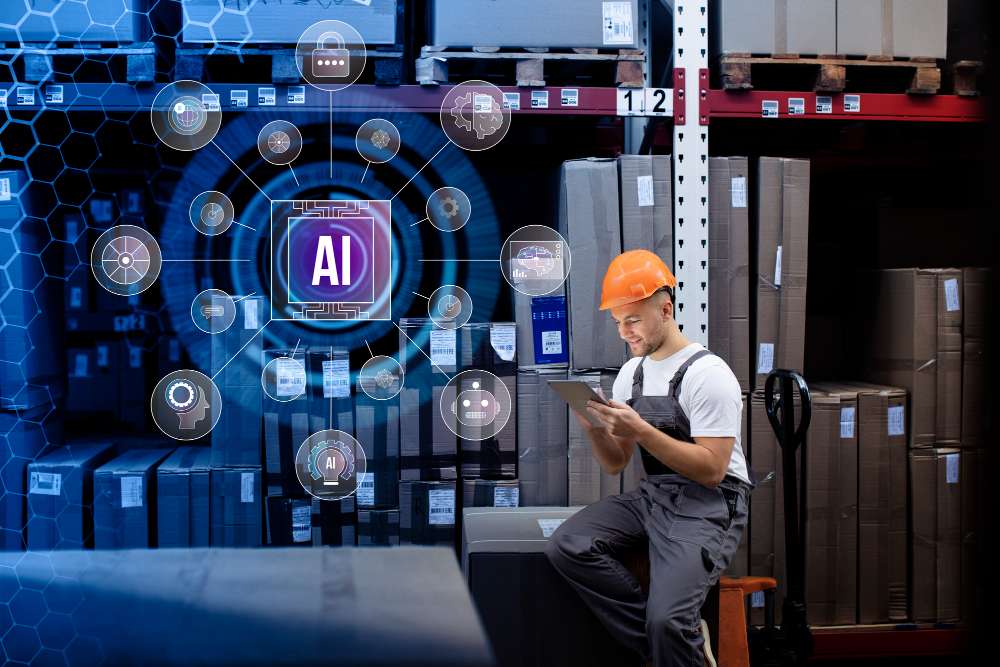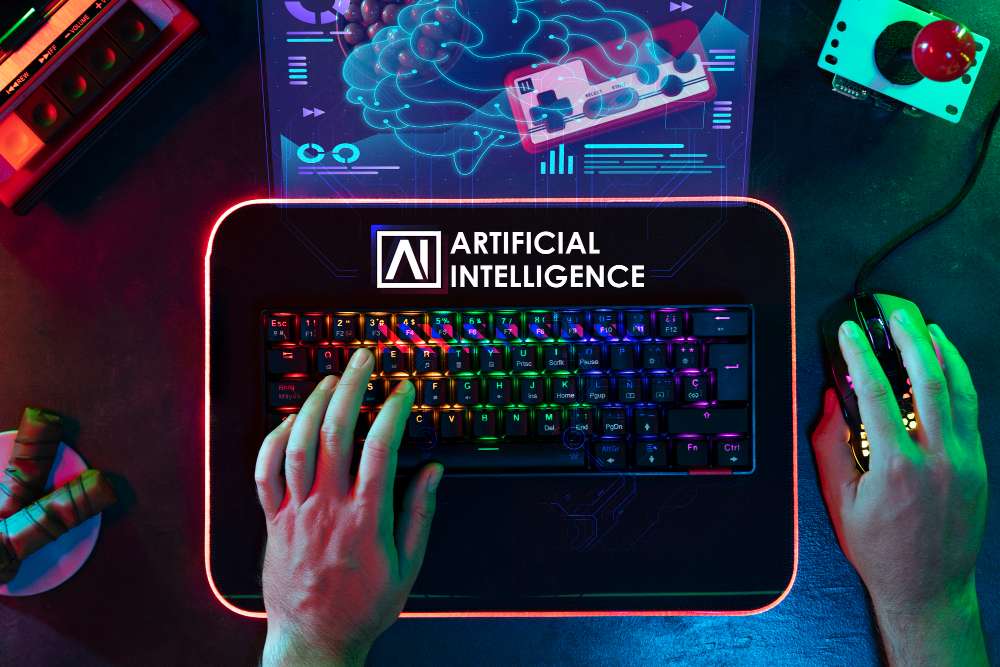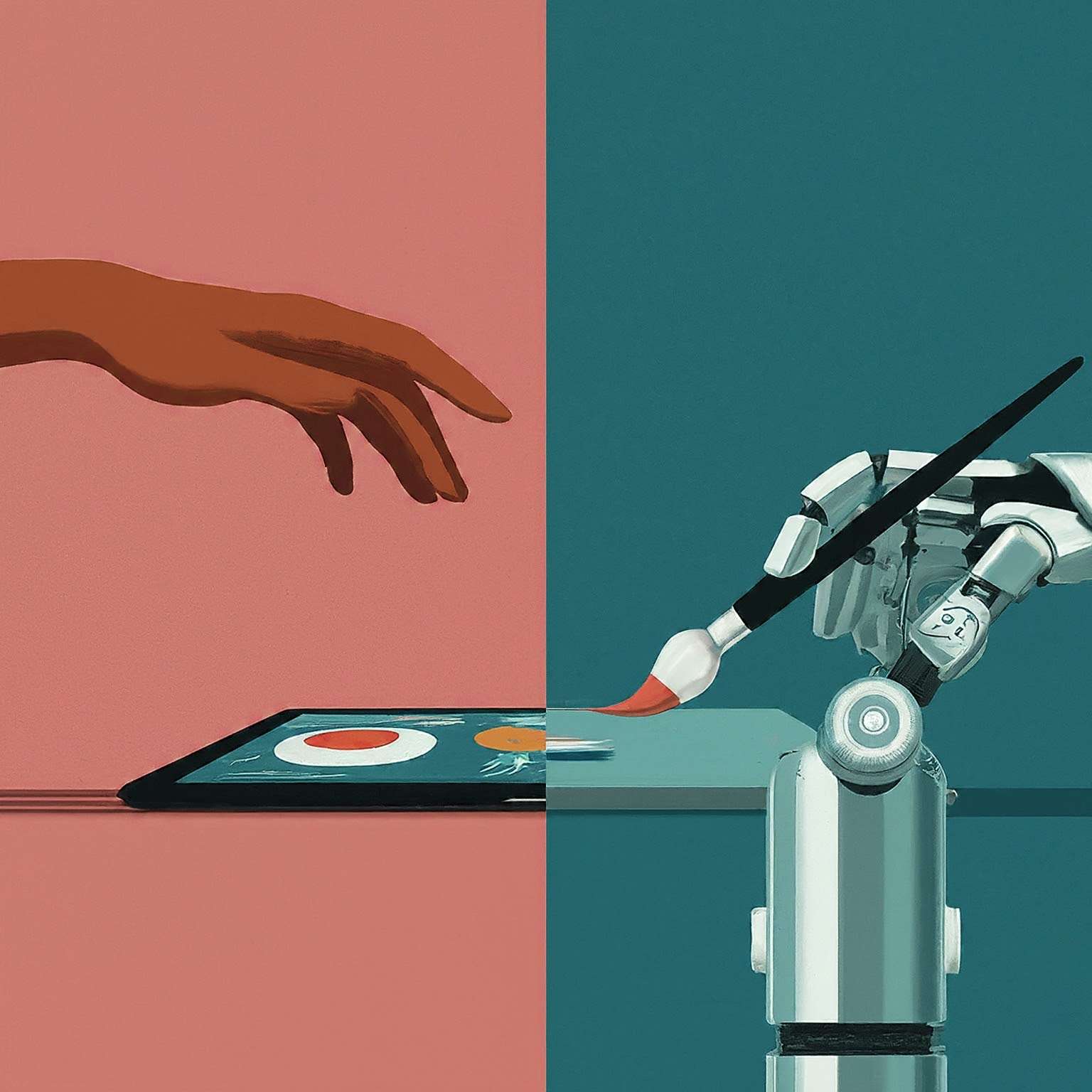Introduction
Hook: Have you ever scrolled through social media and felt like every ad was eerily similar? It’s no coincidence. Artificial intelligence (AI) is rapidly transforming the world of media promotion, influencing everything from who sees your content to the very words used to sell your product.
Explanation: AI encompasses a range of technologies that enable machines to simulate human intelligence. In media promotion, AI tools are used to analyze vast amounts of data about consumer behavior, predict trends, and automate tasks like ad targeting and content scheduling. While these advancements offer incredible efficiency and reach, they also raise a potential concern: are we becoming too reliant on algorithms and losing the human touch in marketing?

Concept: This blog post explores the benefits of AI in media promotion while also highlighting the dangers of becoming a “marketing machine,” solely driven by algorithms and devoid of genuine connection. We’ll discuss how to strike a balance between AI automation and human creativity to achieve successful and engaging marketing campaigns.
The Benefits of AI in Media Promotion: Friend, Not Foe
The rise of AI in media promotion isn’t all doom and gloom. It offers a treasure trove of benefits for marketers looking to optimize their campaigns and reach the right audience. Here’s how AI can be your powerful ally:
- Efficiency Unleashed: Imagine a world where tedious tasks like scheduling social media posts or analyzing campaign data vanish. AI tools can handle these repetitive processes with remarkable speed and accuracy. Marketers are freed from the mundane, allowing them to focus on strategic planning and creative brainstorming. Tools like Hootsuite and Sprout Social leverage AI to automate scheduling and analyze content performance, saving valuable time and resources.
- Targeting on Point: Gone are the days of spraying marketing messages across the internet and hoping for the best. AI excels at analyzing user behavior, demographics, and interests. This allows for hyper-targeted campaigns that reach the exact audience most likely to be receptive to your message. Platforms like Facebook Ads and Google Ads utilize AI to identify ideal audiences based on a multitude of factors, leading to a significant increase in campaign effectiveness.
- Personalization Powerhouse: AI doesn’t just target the right audience; it helps you speak directly to them. By analyzing user preferences and past interactions, AI can personalize content and messaging to resonate with individual needs and interests. This personalized approach fosters a deeper connection with your audience, leading to higher engagement and conversion rates. Tools like Netflix and Spotify use AI-powered recommendations to personalize content suggestions, keeping users engaged and loyal.
- Content Creation Catalyst: While AI might not replace Ernest Hemingway any time soon, it can be a valuable asset in the content creation process. AI-powered tools can help with tasks such as generating topic ideas, optimizing headlines for search engines, and even writing basic ad copy. These tools break through writer’s block and provide a springboard for human creativity, allowing marketers to focus on crafting truly compelling content. Platforms like Grammarly and Jasper utilize AI to generate content suggestions and improve writing efficiency.
- Data-Driven Decision Making: In the past, marketing decisions were often based on gut feeling or intuition. With AI, marketers now have access to a wealth of data and insights. AI tools can analyze campaign performance in real-time, revealing what’s working and what needs improvement. This data-driven approach allows for continuous optimization and ensures your marketing efforts are constantly evolving based on factual insights. Platforms like Google Analytics and Adobe Analytics use AI-powered dashboards to provide marketers with actionable insights into their campaigns.

By leveraging these benefits, AI empowers marketers to achieve greater efficiency, reach, and engagement in their media promotion efforts. But as with any powerful tool, it’s crucial to use AI responsibly to avoid becoming a faceless “marketing machine.” In the next section, we’ll explore the potential downsides of overreliance on AI and how to maintain a human-centric approach for truly successful campaigns.
The Algorithmic Abyss: Avoiding the Pitfalls of Overreliance on AI
While AI offers undeniable benefits, relying solely on algorithms can lead to marketing campaigns that fall flat. Here’s why it’s important to maintain a human touch alongside AI:
- The Intimacy Factor: Marketing is about building relationships with your audience. Generic, AI-generated messaging devoid of emotional connection can leave consumers feeling alienated. Humans can understand the nuances of language, humor, and storytelling, allowing them to craft messages that resonate and build trust. Remember, people buy from people, not algorithms.
- The Bias Blindspot: AI algorithms are only as good as the data they’re trained on. Unfortunately, data sets can be biased, leading to algorithms that perpetuate unfair targeting practices. This can not only harm your brand image but also exclude entire segments of your potential audience. Marketers need to be aware of potential biases and actively work to ensure fair and inclusive campaigns.
- The Creativity Conundrum: AI is a powerful tool for generating content suggestions, but it lacks the spark of true creativity. Humans excel at coming up with innovative ideas, storytelling, and emotional connection. Relying solely on AI can result in uninspired campaigns that blend into the background noise. Use AI to support your brainstorming, but never let it replace your team’s creative vision.
- The Adaptability Challenge: The world is dynamic, and consumer trends can shift rapidly. AI struggles to adapt to these changes in real-time. Humans can interpret unexpected situations and adjust strategies accordingly. A human marketer can spot emotional responses in the audience and adjust messaging or tactics on the fly.
- The Measurement Mishap: AI excels at analyzing data and measuring campaign performance. However, marketing is more than just numbers. AI can’t measure the intangible impact of a campaign, such as brand sentiment or the emotional connection established with the audience. Marketers need to consider both quantitative and qualitative data to gain a holistic understanding of their campaign’s effectiveness.
The Human-AI Symbiosis:
The key to successful marketing in the age of AI lies in achieving a balance. Don’t be a “marketing machine” – embrace AI as a collaborator, not a dictator. Here’s how to strike the perfect balance:
- Define Your Goals: Before deploying AI tools, clearly define your campaign goals and target audience. This ensures the tools are used effectively and align with your overall marketing strategy.
- Maintain Control: Don’t blindly trust algorithms. Maintain human oversight throughout the campaign development and execution process.
- Fuel Creativity with Data: Use AI-generated insights to inform your creative decisions, but never let it dictate your entire message.
- Build Relationships: AI excels at targeting, but humans foster connections. Use AI to reach the right audience, but employ human creativity to build lasting relationships.
- Analyze with Nuance: While AI provides valuable data, combine it with qualitative analysis to understand the emotional aspects of your campaign’s impact.
By harnessing the power of AI while maintaining a strong human-centric approach, you can create engaging and effective marketing campaigns that resonate with your audience and achieve your desired outcomes. Remember, in the world of marketing, the perfect blend of human empathy and AI efficiency is the recipe for success.
Conclusion: The Future of Marketing – A Human-AI Alliance
The rise of AI in media promotion represents a powerful shift in the marketing landscape. However, it’s important to remember that AI isn’t here to replace marketers; it’s here to empower them. By leveraging AI’s strengths in automation, targeting, and data analysis, marketers can free themselves to focus on the irreplaceable human aspects of marketing – creativity, empathy, and building genuine relationships with their audience.
The future of marketing lies in a collaborative approach – a powerful synergy between human intuition and AI’s analytical capabilities. Here are some key takeaways:
- Embrace the Tools, Not the Takeover: Don’t be afraid to experiment with AI tools, but ensure they remain tools, not replacements for your marketing expertise.
- Focus on What Makes Us Human: Leverage AI to handle the mundane, but prioritize the human touch in crafting compelling messages and building trust with your audience.
- Measure with a Multifaceted Lens: While AI excels at quantitative analysis, remember to consider the emotional impact of your campaigns for a holistic understanding.
By adopting a human-centric approach that utilizes AI’s strengths strategically, you can ensure your marketing campaigns remain relevant, engaging, and ultimately, successful. Remember, the most effective marketing isn’t driven by algorithms; it’s driven by a deep understanding of your audience and a genuine connection forged through human empathy and creativity.
